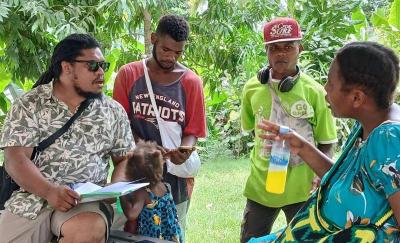Opportunities to Unlock Climate Finance in Emerging Markets in a High-Interest-Rate World


Climate finance in emerging markets has matured in size and sophistication during a decade of extraordinarily low global interest rates. Since at least 2010, the global volume of climate transactions has nearly doubled to USD$640 billion as of 2020, though it is still short of the minimum USD$4.5 trillion annual climate funding needed to achieve the transition to net zero emissions.
This period is now coming to an end. Growing interest rates in response to increased inflation are projected to reduce investment activity in emerging markets, which will impact a broad range of economic activities. Some of the most significant impacts in emerging markets include a decrease in private investment, an uptick in private distressed debt, constrained government budgets, and, overall, lower economic growth and reduced adaptive capacity to adjust to the negative impacts of climate change.
In response, climate financiers should explore partnerships with emerging market lenders to replace distressed debt with new climate-linked loans, engage local microfinanciers and supply chain financiers to develop climate-linked portfolios that target marginalized populations that will be left behind, and explore public finance products that respond to public sector cash flow challenges.
More broadly, climate financiers are well positioned to become agents of transformation for climate action and lead the charge to identify, innovate, and adapt to the opportunities and challenges presented by higher interest rates in emerging markets. Increased interest rates may well mark the beginning of a period of exploration and creativity for climate finance in these markets.
In a report ahead of the 27th UN Conference of the Parties on Climate Change, Abt Global outlines strategic opportunities for climate financiers to grow momentum in commitments amid less favorable macro-economic conditions, and ultimately ensure that COP27 delivers on action-oriented, coordinated, and investable solutions to the climate crisis.
Explore Our Environment & Energy Work

Coastal Resilience Powered by Open Data and Modern Tools
For the Department of the Interior, streamlined data access and user-friendly tools that strengthen coastal protection, marine minerals access, and environmental resilience.

Addressing Cumulative Air Pollution in Massachusetts
Supporting Massachusetts in developing cumulative impact analysis and protective air permitting tools.

Smoke-Free Cocoa Opens Premium Export Opportunities for PNG
A low-cost solar innovation is raising incomes, reducing labour, and putting Papua New Guinea’s smallholder cocoa growers on the premium export map.

Going Local in Climate Finance Flows
Abt’s targeted support to national and regional institutions enables them to secure funding directly from the Green Climate Fund, making it more responsive, equitable, and effective.
Region
- Africa
- Asia & Pacific
- Latin America and the Caribbean
- Middle East
- North America
- Europe
- United Kingdom